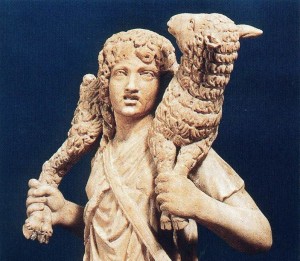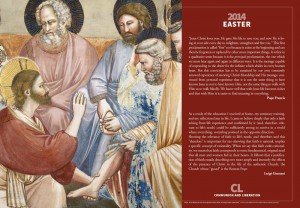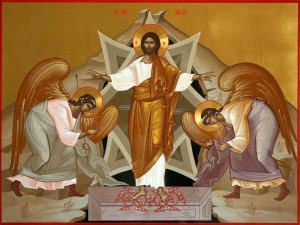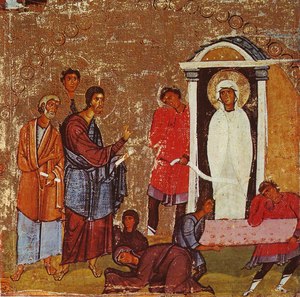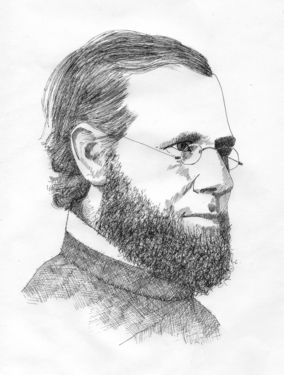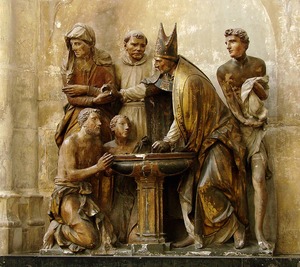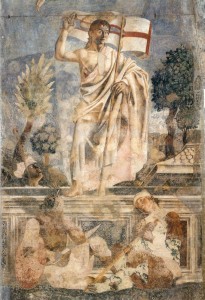 Pope Francis preached at the Easter Vigil (2016): “…it is important to shed the light of the Risen Lord upon our problems, and in a certain sense, to “evangelize” them. Let us not allow darkness and fear to distract us and control us; we must cry out to them: the Lord “is not here, but has risen!” (v. 6). He is our greatest joy; he is always at our side and will never let us down.
Pope Francis preached at the Easter Vigil (2016): “…it is important to shed the light of the Risen Lord upon our problems, and in a certain sense, to “evangelize” them. Let us not allow darkness and fear to distract us and control us; we must cry out to them: the Lord “is not here, but has risen!” (v. 6). He is our greatest joy; he is always at our side and will never let us down.
This is the foundation of our hope, which is not mere optimism, nor a psychological attitude or desire to be courageous. Christian hope is a gift that God gives us if we come out of ourselves and open our hearts to him. This hope does not disappoint us because the Holy Spirit has been poured into our hearts (cf. Rom 5:5). The Paraclete does not make everything look appealing. He does not remove evil with a magic wand. But he pours into us the vitality of life, which is not the absence of problems, but the certainty of being loved and always forgiven by Christ, who for us has conquered sin, death and fear. Today is the celebration of our hope, the celebration of this truth: nothing and no one will ever be able to separate us from his love (cf. Rom 8:39).
The Lord is alive and wants to be sought among the living. After having found him, each person is sent out by him to announce the Easter message, to awaken and resurrect hope in hearts burdened by sadness, in those who struggle to find meaning in life. There is so necessary today. However, we must not proclaim ourselves. Rather, as joyful servants of hope, we must announce the Risen One by our lives and by our love; otherwise we will be only an international organization full of followers and good rules, yet incapable of offering the hope for which the world longs.
How can we strengthen our hope? The liturgy of this night offers some guidance. It teaches us to remember the works of God. The readings describe God’s faithfulness, the history of his love towards us. The living word of God is able to involve us in this history of love, nourishing our hope and renewing our joy. The Gospel also reminds us of this: in order to kindle hope in the hearts of the women, the angel tells them: “Remember what [Jesus] told you” (v. 6). Let us not forget his words and his works, otherwise we will lose hope. Let us instead remember the Lord, his goodness and his life-giving words which have touched us. Let us remember them and make them ours, to be sentinels of the morning who know how to help others see the signs of the Risen Lord.
